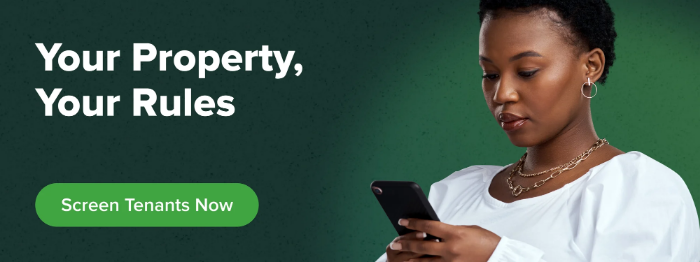As a landlord, maintaining a reliable and safe tenant community is likely your top priority. This usually means being proactive before the tenant moves in—running background checks, calling references, and sharing the lease agreement. If you’ve had renters for a while, one way to build a consistent safety net is with renewal screening checks. In this guide, we’ll walk you through what a renewal screening is, why it’s important, any potential drawbacks, and how to conduct one efficiently.
What is a Renewal Screening Check?
Unlike an initial tenant screening, where a tenant is screened before they move into the property, a renewal screening is done when the tenant’s lease is due for renewal. This process helps landlords assess a tenant’s rental status before committing to another term.
This type of screening usually involves reviewing a tenant’s payment history, lease compliance, criminal record, and other details that might be relevant to their tenancy. While it’s typically not as comprehensive as an initial screening, a renewal check allows landlords to ensure that tenants continue to meet the standards originally set.
The Importance of Renewal Screenings
While a renewal screening check may not be necessary for every situation, conducting one can serve many purposes, including:
- Maintain Quality Tenants: Renewal screenings give you an opportunity to identify the tenants who follow their lease agreement, make on-time payments, and are of high quality. This equates to a more positive rental community.
- Lower Risk: Knowing your tenants remain reliable helps minimize your risk, especially for long-term contracts. Screening tenants at renewal helps detect potential issues or patterns that may arise, such as criminal activity or debt.
- Reduce Expenses: While multiple screenings can cost more upfront, they can save money by helping you dodge a costly eviction or property damage.
- Keep Peace of Mind: Maintain a safe and secure rental environment and know your tenants are in good standing.
When Not to Screen at Renewal
In some instances, a renewal screening check may not seem necessary. If you’ve had a tenant for a year or more, you may feel like you know them well enough to know whether or not you’d like to renew their lease. If they’ve paid on time and have displayed a positive tenant-landlord relationship, there’s no urgent need to screen at every renewal.
Not to mention, your local laws or ordinances may have restrictions in place when it comes to re-screening a previously approved tenant.
What to Look for: Renewal Screening Checks
The most important thing when doing a renewal screening check is to stick to your individual criteria that you used when you approved their initial application. You want to give each tenant an equal opportunity to rent—and that includes your current tenants.

How to Complete a Renewal Screening
If you’re ready to conduct a screening at the time of lease renewal, you’ll want to show as much clear communication and transparency as possible. Here’s a simple approach to help systemize the renewal screening process:
- Plan Ahead: Start the screening process well before the lease ends. This will give tenants time to respond and provide room for any follow-ups. Typically, 60-90 days is recommended. Make sure to check with the lease renewal laws in your state to determine if any specific notices are required.
- Notify the Tenant: Let the tenant know about the screening process and the reason. Building transparency creates trust and allows tenants a chance to prepare ahead of time.
- Keep Privacy Protected: No matter what your screening criteria is, make sure to use screening tools that keep information private and confidential.
- Stay Compliant with Fair Housing Guidelines: Maintain a consistent screening process to comply with the Fair Housing Guidelines. This helps you avoid anything that could be viewed as discriminatory.
Keep in mind that a renewal screening could be as simple as requiring updated proof of income to ensure that the tenant still earns enough to afford the rental for another lease term or as detailed as the background and credit check that you did the first time around.
What to Do About Red Flags
If you complete the renewal screening process and have determined that your tenant no longer meets your rental criteria, it’s important that you address the non-renewal professionally. Here are some things you can do:
- Talk to your tenant about any specific concerns you’d like to address to see if there’s a resolution.
- If you decide to follow through with a non-renewal, make sure to follow the legal guidelines according to your local rental laws.
- A written notice of non-renewal is usually required 30 to 60 days before the lease ends and, generally includes the reason for non-renewal.
Conclusion
As a landlord, there are many screening tools available to make the rental experience easier and more enjoyable for you and your tenants. Renewal screenings are one of those valuable tools that can help you achieve a secure, safe tenant community. Give it a try and see if it makes a difference in your tenant quality.
Get all the information you need about a tenant, all in one, secure place on TenantCloud.







